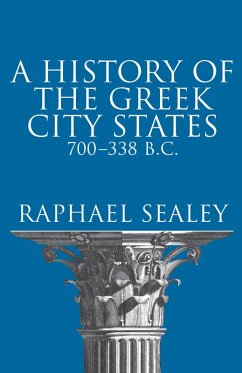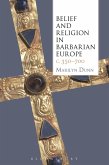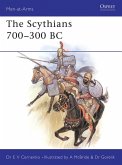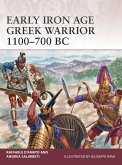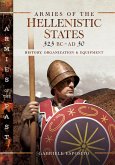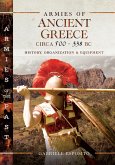This book introduces the reader to the serious study of Greek history, concentrating more on problems than on narrative. The topics selected have been prominent in modern research and references to important discussions of these have been provided. Outlined are controversial issues of which differing views can be defended. Mr. Sealey's preference is for interpretations which see Greek history as the interaction of personalities, rather than for those which see it as a struggle for economic classes or of abstract ideas.
Sealey assumes that the Greek cities of the archaic and classical periods did not inherit any political institutions from the Bronze Age; that the extensive invasions that brought Mycenaean civilization to an end destroyed political habits as effectively as stone palaces. Accordingly, he believes that the Greeks of the historic period were engaged in the fundamental enterprise of building organized society out of nothing.
The first chapters of this work deal with the stops taken by the early tyrants, in Sparta and Athens, toward constructing stable organs of authority and of political expression. In later chapters, interest shifts to relations that developed between the states and especially to the development of lasting alliances. Attention is given to the Peloponnesian League, to the Persian Wars, to the Delian League, and to the Second Athenian Sea League of the fourth century.
This title is part of UC Press's Voices Revived program, which commemorates University of California Press's mission to seek out and cultivate the brightest minds and give them voice, reach, and impact. Drawing on a backlist dating to 1893, Voices Revived makes high-quality, peer-reviewed scholarship accessible once again using print-on-demand technology. This title was originally published in 1976.
This book introduces the reader to the serious study of Greek history, concentrating more on problems than on narrative. The topics selected have been prominent in modern research and references to important discussions of these have been provided. Outlin
Hinweis: Dieser Artikel kann nur an eine deutsche Lieferadresse ausgeliefert werden.
Sealey assumes that the Greek cities of the archaic and classical periods did not inherit any political institutions from the Bronze Age; that the extensive invasions that brought Mycenaean civilization to an end destroyed political habits as effectively as stone palaces. Accordingly, he believes that the Greeks of the historic period were engaged in the fundamental enterprise of building organized society out of nothing.
The first chapters of this work deal with the stops taken by the early tyrants, in Sparta and Athens, toward constructing stable organs of authority and of political expression. In later chapters, interest shifts to relations that developed between the states and especially to the development of lasting alliances. Attention is given to the Peloponnesian League, to the Persian Wars, to the Delian League, and to the Second Athenian Sea League of the fourth century.
This title is part of UC Press's Voices Revived program, which commemorates University of California Press's mission to seek out and cultivate the brightest minds and give them voice, reach, and impact. Drawing on a backlist dating to 1893, Voices Revived makes high-quality, peer-reviewed scholarship accessible once again using print-on-demand technology. This title was originally published in 1976.
This book introduces the reader to the serious study of Greek history, concentrating more on problems than on narrative. The topics selected have been prominent in modern research and references to important discussions of these have been provided. Outlin
Dieser Download kann aus rechtlichen Gründen nur mit Rechnungsadresse in A, D ausgeliefert werden.
Hinweis: Dieser Artikel kann nur an eine deutsche Lieferadresse ausgeliefert werden.

